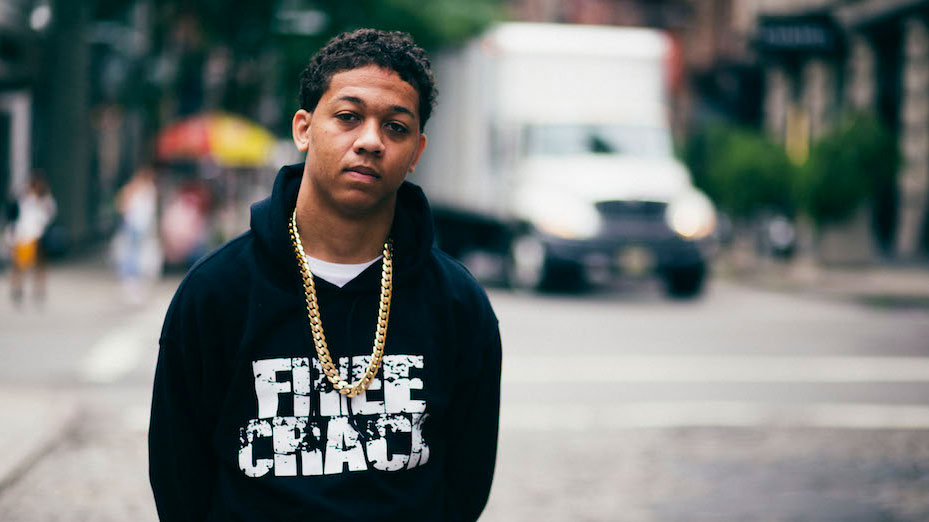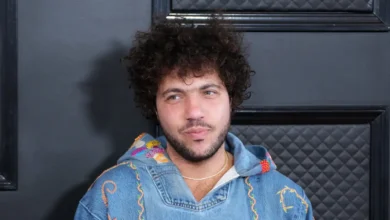Lil Bibby Age, Date Of Birth, Bio, Family And Net Worth
Lil Bibby: Age, Date of Birth & other info
Lil Bibby, born as Brandon Dickinson, is a well-known American rapper, singer, and songwriter who has made waves in the hip-hop scene with his unique blend of street rap and introspective storytelling. His rise to prominence was fueled by his early mixtapes, particularly Free Crack, which introduced him to a wider audience. Since then, Bibby has earned a loyal following thanks to his gritty lyrics, raw delivery, and authenticity, which has led him to become a staple in the Chicago rap scene and beyond.
- Age: 30 years
- Date of Birth: November 18, 1994
- Birth Place: East Side of Chicago, Illinois
- Weight: 150 pounds (68 kg)
- Height: 5 feet 10 inches (178 cm)
- Net Worth: between $10 million and $14 million

Lil Bibby’s Age and Date of Birth
Lil Bibby was born on November 18, 1994, which makes him 30 years old as of 2025. Born in the East Side of Chicago, Illinois, Bibby grew up in one of the most challenging and crime-ridden areas of the city, which significantly influenced his music. His age is significant in the context of his career because he emerged as one of the most notable young talents in rap during the early 2010s and has managed to stay relevant throughout the years.At only 30 years old, Lil Bibby has already built an impressive career that has seen him transition from a local Chicago rapper to a recognized figure in the hip-hop industry. Despite his relatively young age, he has witnessed and been part of some of the biggest transformations in rap over the last decade.
Early Life and Biography of Lil Bibby
Lil Bibby’s story is a testament to resilience and determination. As a young child, he was exposed to the rough realities of inner-city life in Chicago, a city known for its high rates of violence, poverty, and gang activity. His childhood and adolescence were far from easy, and his experiences growing up in such an environment would later shape his lyrical style and approach to music.Bibby attended Robeson High School in Chicago, where he began to show interest in music. His initial exposure to rap came from listening to local legends and influences such as Chief Keef, Lil Wayne, and other prominent Chicago rappers who were making noise in the early 2010s. It was during this time that he began writing his own raps and experimenting with music.Lil Bibby didn’t always think of music as a career, however. Like many other aspiring artists, he had to juggle street life and music. Bibby spent a considerable amount of time in the streets, where he was involved in gang culture and witnessed firsthand the violence and struggles that came with growing up in a tough neighborhood. However, it was music that ultimately became his escape and his ticket out of his circumstances.
Musical Career and Rise to Fame
Lil Bibby’s rise to fame began with the release of his mixtape Free Crack in 2013. The project was well-received by critics and fans alike, as it showcased his raw, unfiltered talent and his ability to craft deeply personal, introspective tracks that resonated with listeners. The mixtape’s success was largely due to its gritty and realistic depiction of Bibby’s life, as well as its blend of street rap and catchy hooks.One of the standout tracks from Free Crack was the song “Kill Shit,” which featured fellow Chicago rapper Lil Herb (now known as G Herbo). The track became an instant hit and helped establish Bibby as a new voice in the Chicago rap scene. He quickly gained recognition for his distinctive style, which was characterized by a deep voice, raw lyrics, and an honest portrayal of life in the streets.Following the success of Free Crack, Lil Bibby released Free Crack 2 in 2014, which further solidified his place in the rap game. The mixtape featured appearances from artists such as Lil Durk and Juicy J, and it was praised for its growth in terms of production quality and lyricism. By this time, Lil Bibby had built a strong fan base, and his reputation as a rising star in the rap world was cemented.In 2015, Bibby continued his momentum by releasing Free Crack 3, the final installment of his Free Crack series. Although this mixtape did not achieve the same level of critical success as its predecessors, it still garnered attention and showed his willingness to experiment with new sounds and themes in his music.While many of his peers were moving towards more commercial or mainstream sounds, Lil Bibby remained rooted in the gritty, street-driven rap that had first brought him attention. His dedication to authenticity and staying true to his roots was evident in every release, making him a respected figure within the hip-hop community.However, despite his early success, Lil Bibby took a step back from the spotlight after releasing his Free Crack mixtapes. In interviews, he has mentioned that he wanted to focus on other business ventures, including managing artists and developing his record label, Grade A Productions. His decision to scale back on music surprised some fans, as he had been seen as one of the hottest young rappers in the game. However, he has continued to make occasional appearances in the music world, collaborating with other artists and occasionally releasing new singles.
Lil Bibby’s Family Background
Not much is publicly known about Lil Bibby’s family, as he tends to keep his personal life private. However, it is known that he grew up in a tough family environment, shaped by the challenges of Chicago’s East Side. His experiences growing up in such an environment have had a profound influence on his music, particularly in his exploration of the struggles faced by young people living in urban America.Despite the difficulties he faced, Bibby has often spoken about his close relationship with his family. In interviews, he has mentioned how his mother played an important role in his upbringing and how he was determined to make it out of his circumstances to help provide for her. While Lil Bibby has not been outspoken about the details of his family, it is clear that his upbringing has shaped much of the artist he has become.One key part of his family life is his brother, who has been mentioned in Bibby’s music and interviews. Bibby’s family has been a source of support for him throughout his career, and much of his music reflects his desire to succeed not only for himself but for the people he cares about.
Lil Bibby’s Net Worth
As of 2025, Lil Bibby’s net worth is estimated to be around $6 million. This figure takes into account his earnings from his music, as well as his business ventures outside of rap. Bibby’s income comes primarily from his successful mixtapes, album sales, and performances, but he has also earned money from his work as a producer and record label executive.Beyond music, Lil Bibby has diversified his income by investing in other business ventures. He has been involved in the management of other artists, most notably through his record label Grade A Productions. This label is home to notable artists such as Juice WRLD, the late rapper who was signed to Grade A before his untimely passing. Bibby’s role as a music executive has contributed to his wealth, and his ability to spot and nurture talent has proven to be an important part of his career.Despite not releasing as much music as he did in his early career, Lil Bibby’s entrepreneurial spirit has helped him maintain a strong financial standing. His investments, business ventures, and consistent presence in the industry ensure that his net worth will continue to grow in the coming years.
Conclusion
Lil Bibby’s story is one of perseverance, talent, and resilience. From his humble beginnings in Chicago to his rise as a respected figure in the rap game, Bibby has proven that hard work and authenticity can lead to success. Despite facing many challenges growing up in a rough neighborhood, Bibby used music as a way to express his struggles and connect with others facing similar difficulties.Today, at 30 years old, Lil Bibby continues to be a prominent figure in hip-hop, whether through his own music or his work as a music executive. With an estimated net worth of $6 million, he has secured his place in the rap industry, and his continued focus on business and artist development promises even more success in the future.As he continues to evolve both as an artist and entrepreneur, Lil Bibby’s legacy as a pivotal figure in the Chicago rap scene and beyond is still unfolding, and it will be exciting to see where his career takes him in the years to come.




